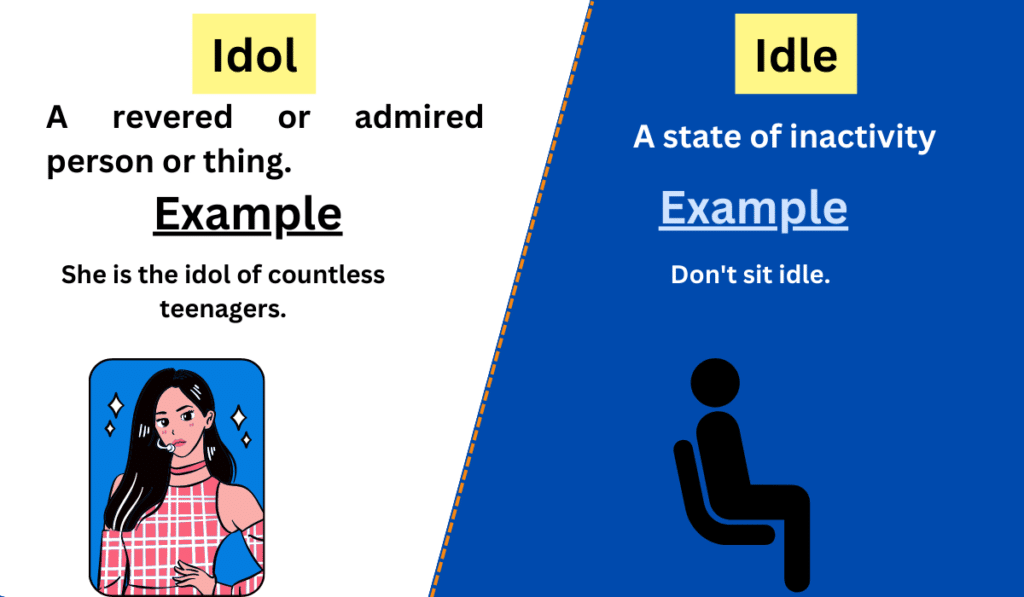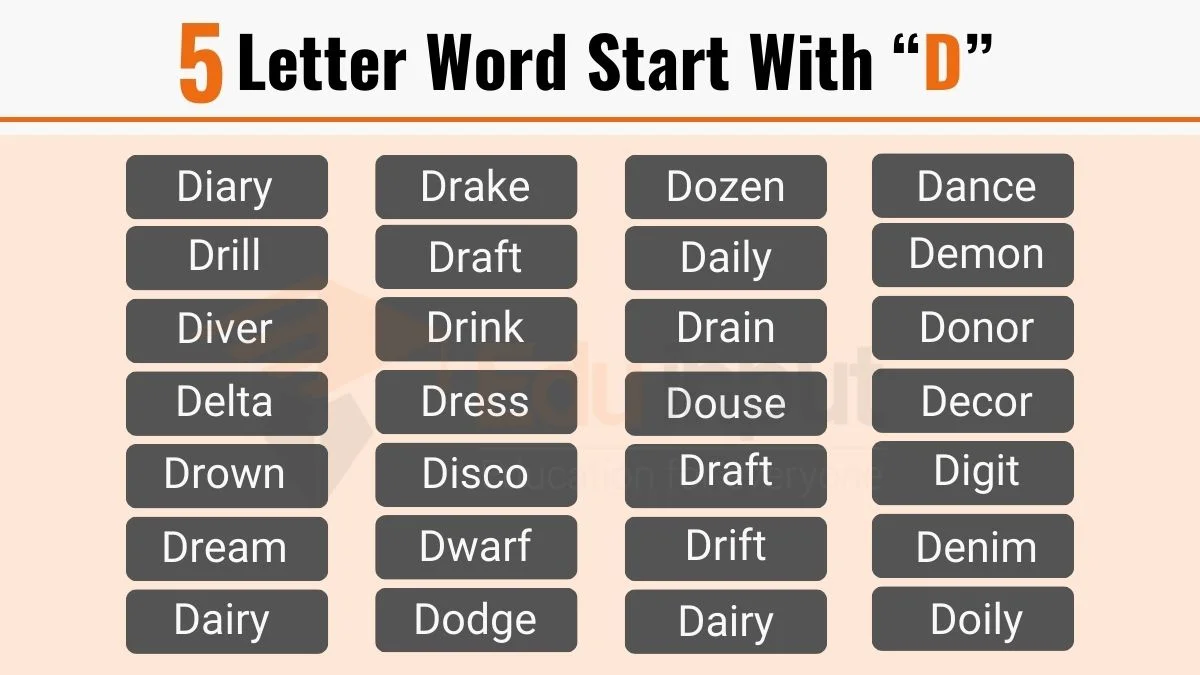Idol vs. Idle- Difference Between and example
In the realm of words, where meanings interweave and nuances abound, “idol” and “idle” stand as distinct entities, carrying contrasting connotations and implications.

Although their spellings may appear similar, they traverse separate paths in language and understanding.
In this article, we delve into the divergent realms of “idol” and “idle,” unraveling their definitions, contexts, and applications.
By discerning their disparities, we can embrace a deeper comprehension of these terms and accurately employ them in our conversations.
Join us on this linguistic exploration as we illuminate the distinction between “idol” and “idle.”
Meanings and Examples
Idol Definition
Definition: “Idol” refers to a revered or admired person or thing that is passionately worshipped or idolized by others. It signifies a symbol of adoration or devotion.
Examples of Idol
- Many teenagers consider their favorite pop star as their idol.
- In some cultures, people create elaborate shrines to honor their religious idols.
- The renowned actor became an idol for aspiring performers around the world.
Idle Definition
Definition: “Idle” pertains to a state of inactivity, laziness, or lacking purposeful engagement. It denotes a condition of not being utilized or occupied.
Examples of Idle
- He spent the entire afternoon in idle conversation, avoiding any productive tasks.
- During the economic downturn, many factories remained idle, resulting in significant job losses.
- She felt guilty for her idle behavior, knowing that she should be working on her important project.
Difference between Idol and Idle
| Category | Idol | Idle |
| Meaning | A revered or admired person or thing | A state of inactivity or lack of purposeful engagement |
| Example | “Many teenagers consider their favorite pop star as their idol.” | “He spent the entire afternoon in idle conversation, avoiding any productive tasks.” |
| Usage | Describing a symbol of adoration or devotion | Referring to inactivity, laziness, or lack of occupation |
| Context | Celebrity culture, worship, admiration | Lack of productivity, wasting time, absence of purpose |
Usage in a Paragraph
In the bustling city, where dreams took flight, a young musician found herself drawn to the mesmerizing world of music.
She eagerly soaked in the melodies and lyrics of her favorite artists, finding inspiration in their talent and stage presence.
Among them, one particular pop star stood out—her idol. With every note sung and every move made, the pop star became a beacon of admiration, embodying the aspirations and dreams she held dear.
Meanwhile, in the same city, another individual led a different existence. He drifted through the days, seemingly content in his idle state. Instead of utilizing his skills and talents, he whiled away the hours in aimless pursuits and empty conversations.
The once-promising opportunities remained untouched, as he remained in the comfort of his idle routine, lacking the drive to push forward and make a meaningful impact.
Although “idol” and “idle” may share some superficial similarities in spelling, they represent divergent concepts with distinct meanings.
“Idol” signifies a revered or admired person or thing, evoking notions of adoration and devotion.
On the other hand, “idle” characterizes a state of inactivity or lack of purposeful engagement, highlighting the absence of productivity and meaningful occupation.
By understanding the disparities between these terms, we can communicate with clarity and precision, appreciating the nuances of language. Let us celebrate our idols while avoiding the pitfalls of idleness






Leave a Reply